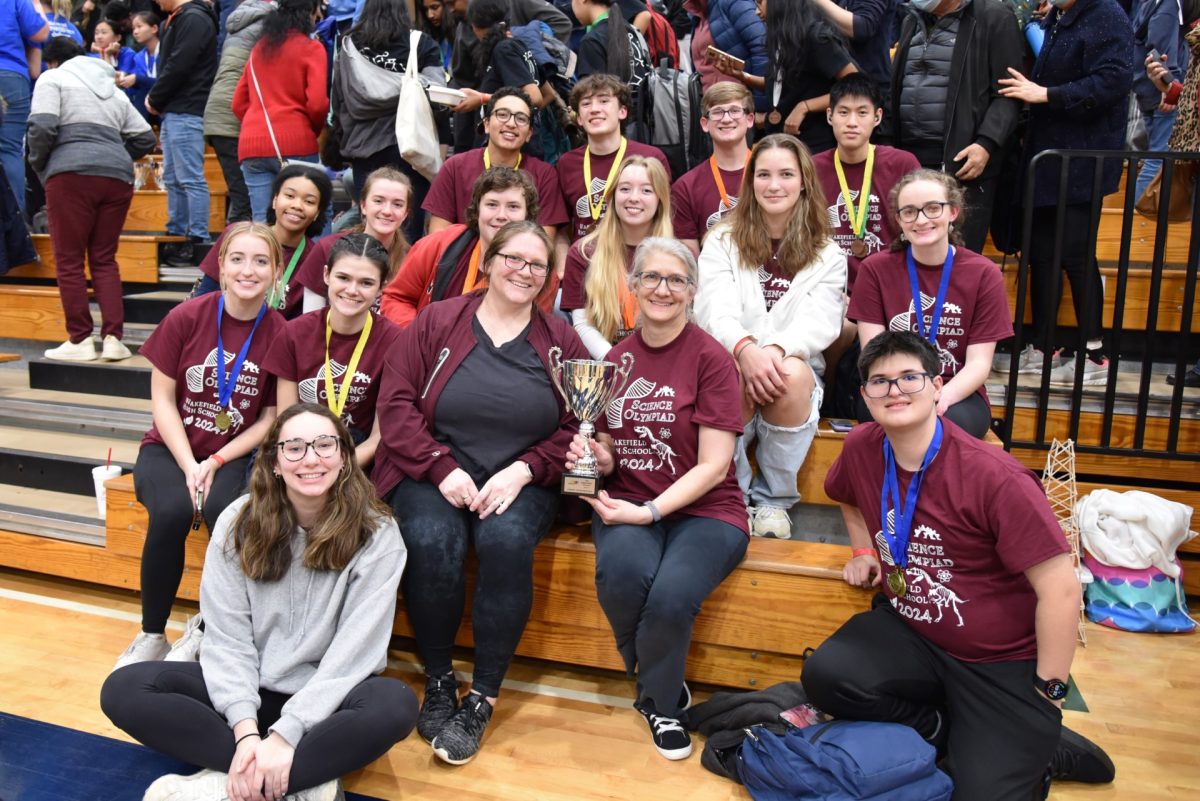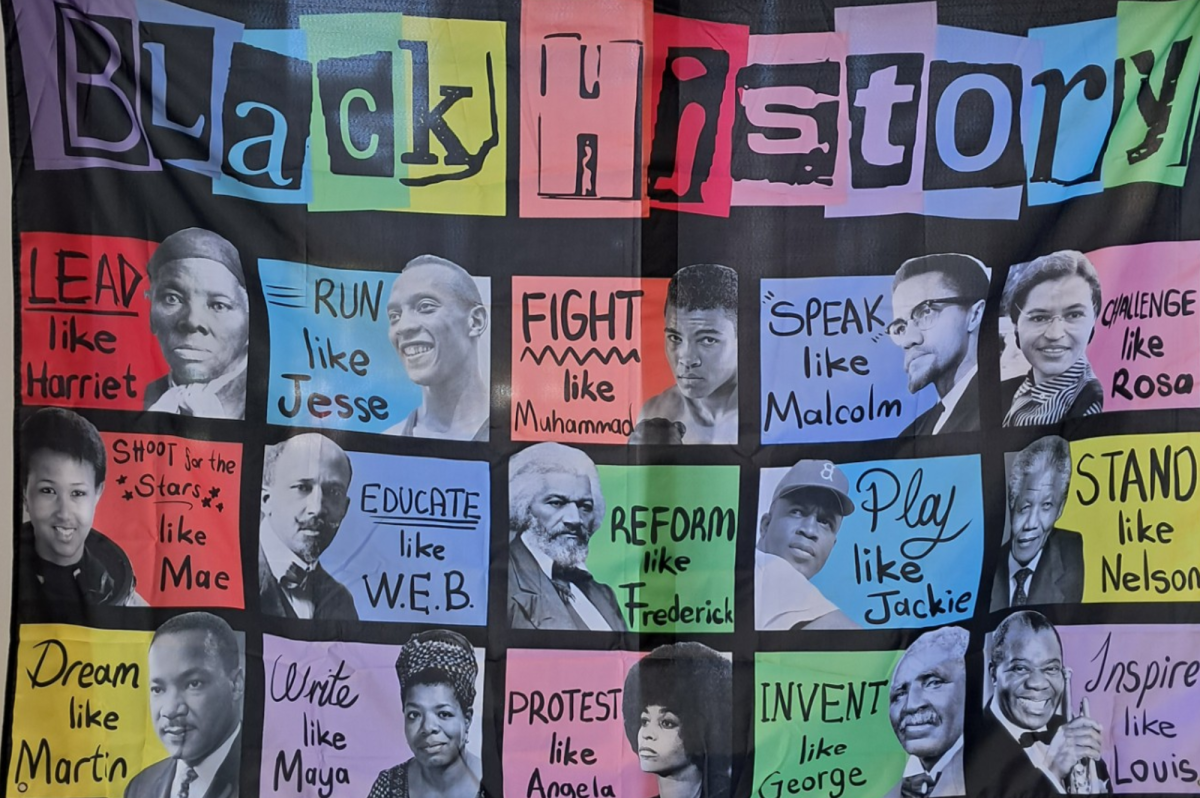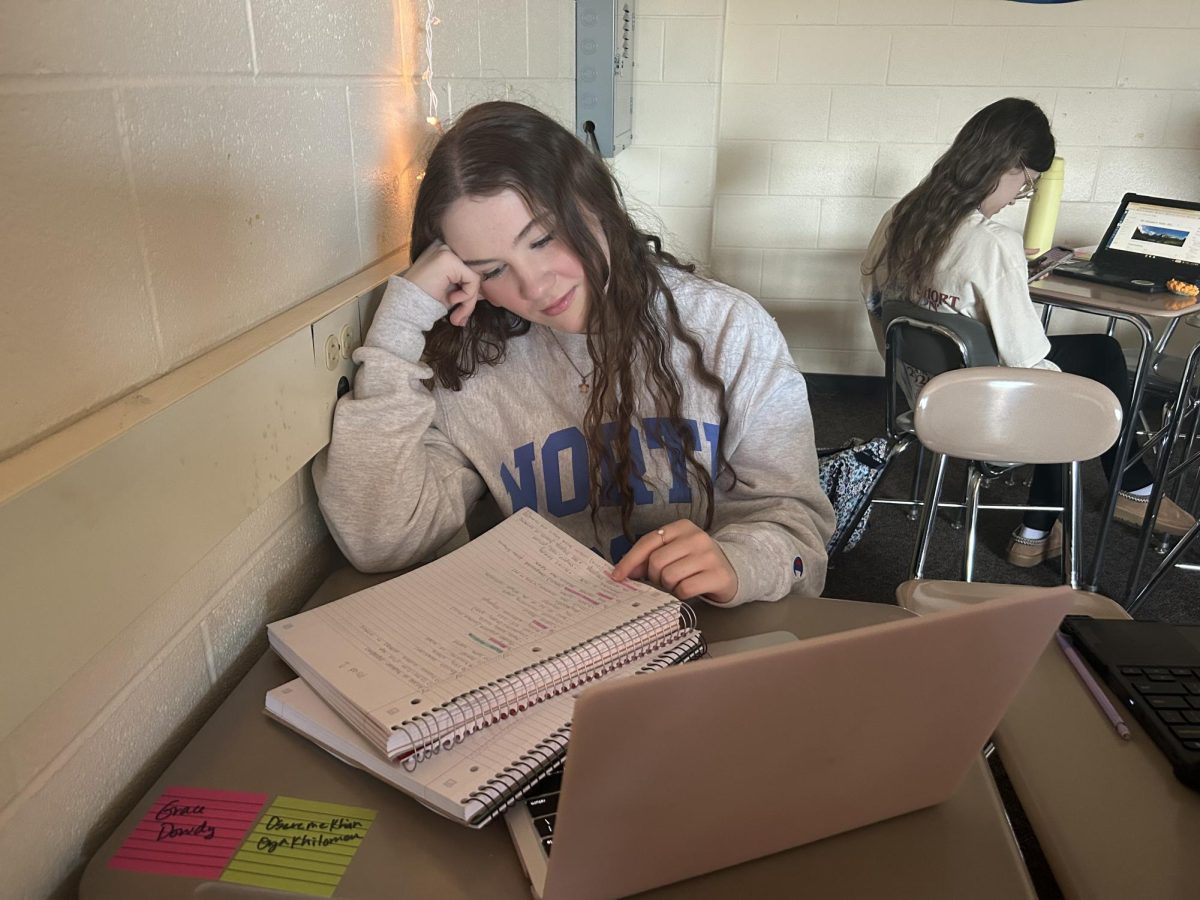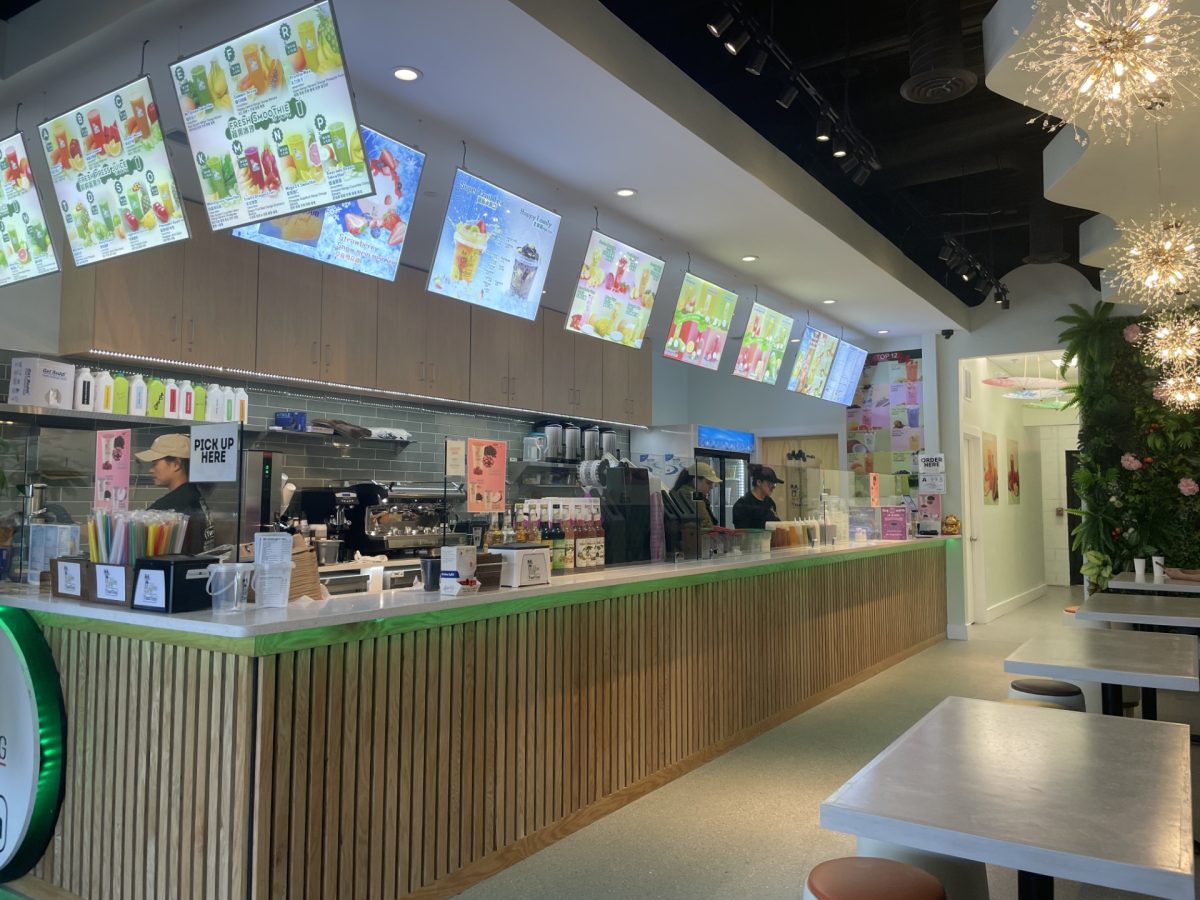Science Olympiad is a team STEM competition for students in middle and high school to compete in different events and show off their knowledge in specific science, technology, engineering and math topics. Wakefield has been competing in Science Olympiad competitions for over two decades now and has proved to be an efficient and devoted team. On February 3, the Science Olympiad team traveled to compete and ended up placing seventh overall.
There are a total of 23 events ranging from test-taking to hands-on building and teamwork events. Through these activities, the students must prepare themselves for their designated event, and the rest of the team must trust one another. While each of the events are individualized, everyone’s scores come together as a team. Even in duo competitions, there is a lot of trust between teammates that each member will perform to their best ability.
Robyn Dembisky is one of the advisors for Wakefield’s Science Olympiad and has been involved for four years. During her time with the team, she has found competitions to be a great way for students to learn how science and technology work in the real world. While science classes are a great way for students to get their hands on STEM-related topics, the Science Olympiad competitions allow students to work together with hands-on activities as well as tests.
“There were 23 varsity teams [at the competition] and a lot of the teams there were national ready, which means they usually make it to states,” Dembisky said. “We placed seventh overall and all of the teams above us were national ready.”
While the club is a team, there is a lot of individualism that comes with preparing and competing. Aidan Leinbach is a junior who has always been drawn to the sciences and has been competing in the Codebusters event for the past four years. After joining the Science Olympiad team in middle school, Leinbach has found that this opportunity has helped him prepare for his academics.
“I try [to] study as much as I can during my downtime,” Leinbach said. “I plan to take the time management skills that I have developed [in Science Olympiad and use them in the future].”
Like many aspects of life, some things are out of control. Last year senior Julian McLoughlin was unable to attend regionals, but prepared himself and came back for the 2024 competition. As an aspiring engineer, McLoughlin uses Science Olympiad as a way to get involved in the science field and get a feel for what might come his way.
“Some things don’t work right the first time, so going through and having to adjust and make alterations to the device is the biggest challenge,” McLoughlin said.
Mackenzie Book has been a member of the Science Olympiad team for a total of five years and has competed in a range of competitions and events. She has taken up several different events throughout her years on the team and has found events such as Optics and Write It Do It to be the most fun.
“It is all partners and some groups of three, so you really have to communicate well with the other person,” Book said. “You have to know each other and trust each other.”
While Science Olympiad enables students to learn and gain knowledge in STEM-related subjects, it is also a way for them to express their passions and get to know others who are interested in the same topics. The club offers a great academic opportunity that students can take advantage of that could help them in the future.
“I learned a lot about the engineering and design process,” McLoughlin said. “It was a great experience in getting to learn the steps to create something.”










